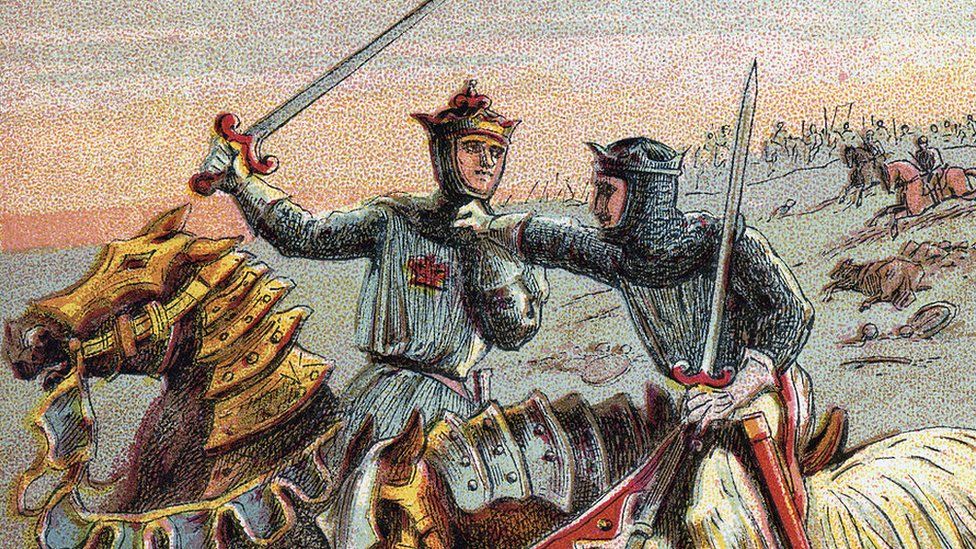
IMAGE SOURCE,GETTY IMAGES
Image caption, Guns did not exist in Europe when the statute was passed
A medieval English law dating back nearly seven centuries is now at the heart of the most important US Supreme Court gun case in a decade.
The case - which stems from a New York legal battle - challenges a state law that requires that gun users who want a concealed carry permit first prove they have a valid reason.
To help them determine how broad the rights of America's many gun owners go, the country's nine supreme court judges are also looking back to the 1328 Statute of Northampton, which dates back to the reign of Edward III.
Here's what we know.
What's the case?
On Wednesday, the Supreme Court heard oral arguments in the case of the New York Rifle and Pistol Association v Bruen, which revolves around New York's laws governing concealed carry licenses.
The laws require that residents who want a license to carry a concealed pistol must prove they have "proper cause" for it and that they face "a special or unique" level of danger.
The plaintiffs in the case, Robert Nash and Brandon Koch, applied for a concealed carry permit but were denied, although they were given licenses that allow them to carry guns for recreational purposes such as hunting and target shooting.
With the support of the New York Rifle and Pistol Association - which is affiliated with the National Rifle Association (NRA) - in 2018 Mr Nash and Mr Koch filed a lawsuit challenging the constitutionality of New York's "proper cause" requirement and handgun regulations.
Their case was dismissed by a federal court in New York, a decision that was affirmed by an appeals court. This, in turn, led the Supreme Court to hear the case. READ MORE...
A medieval English law dating back nearly seven centuries is now at the heart of the most important US Supreme Court gun case in a decade.
The case - which stems from a New York legal battle - challenges a state law that requires that gun users who want a concealed carry permit first prove they have a valid reason.
To help them determine how broad the rights of America's many gun owners go, the country's nine supreme court judges are also looking back to the 1328 Statute of Northampton, which dates back to the reign of Edward III.
Here's what we know.
What's the case?
On Wednesday, the Supreme Court heard oral arguments in the case of the New York Rifle and Pistol Association v Bruen, which revolves around New York's laws governing concealed carry licenses.
The laws require that residents who want a license to carry a concealed pistol must prove they have "proper cause" for it and that they face "a special or unique" level of danger.
The plaintiffs in the case, Robert Nash and Brandon Koch, applied for a concealed carry permit but were denied, although they were given licenses that allow them to carry guns for recreational purposes such as hunting and target shooting.
With the support of the New York Rifle and Pistol Association - which is affiliated with the National Rifle Association (NRA) - in 2018 Mr Nash and Mr Koch filed a lawsuit challenging the constitutionality of New York's "proper cause" requirement and handgun regulations.
Their case was dismissed by a federal court in New York, a decision that was affirmed by an appeals court. This, in turn, led the Supreme Court to hear the case. READ MORE...
No comments:
Post a Comment